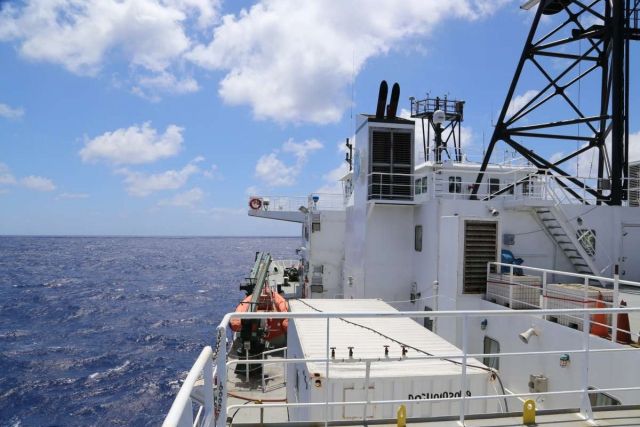Winner XPRIZE gets $ 1.5 million on improving the ocean
Ocean Science nerds look followed the awarding of the winner of the second Wendy Schmidt Ocean XPrize Monday night, when he covered with salt and passing another test Kilo Moana, he came to the podium. For the first place in two categories, the winning team received $ 1.5mln XPrize in total.
“Having studied the circuit race, we understood that you can win in two categories,” – explains CEO Wendy Schmidt Ocean XPrize Paul Banja, but “did not expect to be honest.”
ANB Sensors, the losing team from Cambridge, England, earned second place in the category of affordability, while as a proven Team DuraFET was awarded second place in the category of accuracy, and both received $ 250,000.
But first prize in both categories was $ 750,000, and both took first prize Sunburst Sensors under the leadership of Director General James Beck.
Missoula, Montana has a team of ten years makes equipment for oceanographic sensing, this time limited to the measurement of pH. A team of ten people could modify their model of the sensor (SAMI – submersible standalone tool that was originally designed to measure the level of CO2) to that measured the desired pH level. They presented two prototypes of the competition: a cheaper version of the basic model, called i-SAMI (“i” is inexpensive, inexpensive), and won the award for accessibility, and t-SAMI (“t” is the titanium), which won the prize for accuracy.
“This is the legacy of Sunburst, which previous primary technologies turned into two completely new product that can do a whole new dimension, and execute them with the provided speed,” – says Banjo.
Banjo was not the only one who noticed that the land the company has received both prizes in the competition of marine technology. “It was very unexpected,” – said Beck so that Banja called “charming humility.”
This will change our attitude towards the sea.
Beck, a hereditary montanets, reacted with dismay to the test t-SAMI at a depth of 3,000 meters in the open ocean. “The pump can break down, pressure is growing rapidly. We have no other way to simulate this situation,” – he said a week before the study visit. But after the first in-depth tests, Beck, leaning his ear to the device, and find that it works, I sighed with relief. “I heard the pump, because he knew that it still works.”
“Once he overcame 1,000 meters, I was quite confident of success. If he plunged to 1,000, then to 3,000 sink” – said Beck. However, chickens assume he did not hurry. “I was afraid every time to fit, but I felt relieved each time stronger and stronger.”
Banjo is also outside the earth’s optimism in anticipation of a reward for the XPrize. “Teams have started to introduce new options for the use of their own inventions,” – he says. “We have seen this, even the teams that did not pass the final”, hinting obviously the potential for civil science, applied technology such as Smart Phin. “I’m very excited with how this prize contributes to the development not only in the field of ocean acidification, but also the measure of things, because the new players bring new developments to assess.” The couple plans to use at least a few hard-won victories to advance to the i-SAMI market. “What we demonstrated was rather crude prototype, just to dazzle some of the ideas into a coherent whole, with not much not overstating the price”, – says Beck. “But to turn the sensor to the product that anyone would want to buy, you need to do some work.”
He stressed that the real winners – those who are passionate about the ocean and the methods for measuring its chemical composition. “This is just the point in time when we got to the top, but I believe there are many exciting things that have to be done” – he said. “I think there are a lot of interesting approaches, and I am glad to see that they are applied now.” Although the competition ended XPrize, Banja believes that these discoveries are still ahead. “Keep your eyes open”, – he said. “I think this prize will be a turning point in how we measure the ocean, and I hope that he will transform our relationship to the seas.”
The competition in the construction of a universal sensor pH was at least the second of five Ocean XPrize, which are planned for the future. The next is likely to be appointed at the end of this year.




